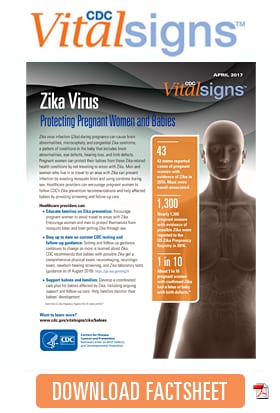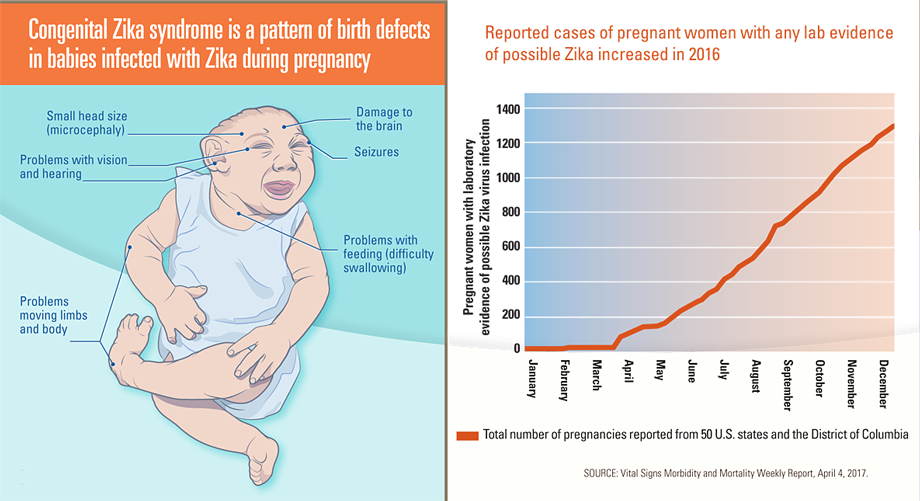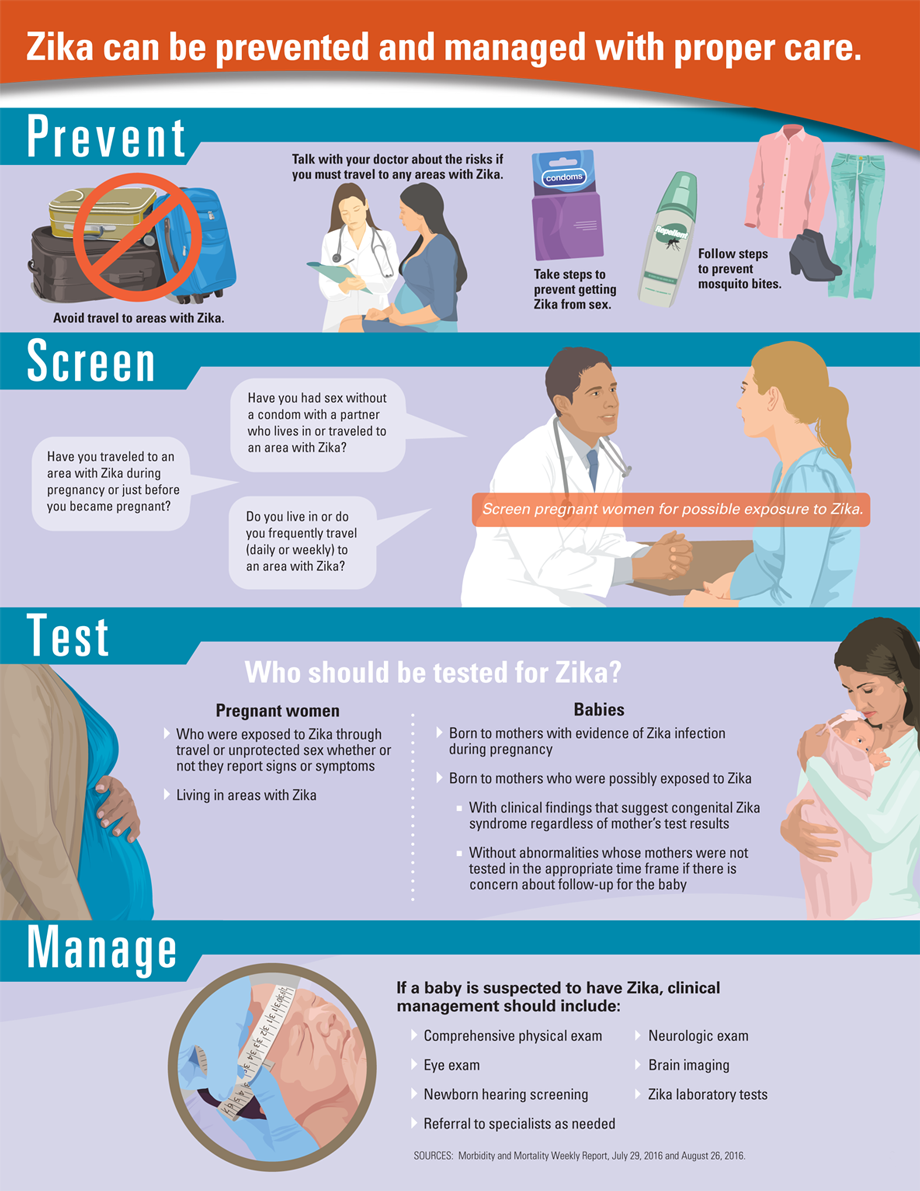Zika Virus
Protecting Pregnant Women and Babies

Overview
Zika virus infection (Zika) during pregnancy can cause damage to the brain, microcephaly, and congenital Zika syndrome, a pattern of conditions in the baby that includes brain abnormalities, eye defects, hearing loss, and limb defects. Pregnant women can protect their babies from these Zika-related health conditions by not traveling to areas with Zika. Men and women who live in or travel to an area with Zika can prevent infection by avoiding mosquito bites and using condoms during sex. Healthcare providers can encourage pregnant women to follow CDC’s Zika prevention recommendations and help affected babies by providing screening and follow-up care.
Healthcare providers can:
- Educate families on Zika prevention: Encourage pregnant women to avoid travel to areas with Zika. Tell women and men how to protect themselves from mosquito bites and from getting Zika through sex.
- Ask about Zika and provide all needed tests and follow-up care: Guidance is updated as more is learned about Zika so check on current recommendations. Babies with possible Zika should get a comprehensive physical exam, neuroimaging, neurologic exam, newborn hearing screening, and Zika laboratory tests (guidance as of August 2016). https://go.usa.gov/xXq2A.
- Support babies and families: Develop a coordinated care plan for babies affected by Zika, including ongoing support, follow-up care, and linking to your local health department. Help families monitor their babies’ development.

Data from US Zika Pregnancy Registry (50 US states and DC)

View large image and text description

View large image and text description
What Can Be Done?
The Federal government is
- Monitoring cases of infections among pregnant women to identify the long-term consequences of congenital Zika infection.
- Collaborating with clinical experts and organizations to update guidance as needed for healthcare providers on clinical management of pregnant women and babies affected by Zika.
- Researching factors that might affect birth defects in fetuses and babies, including the timing of Zika infection during pregnancy.
- Improving laboratory testing for Zika and providing state, tribal, local, and territorial health laboratories with diagnostic tests.
- Accelerating the development of a vaccine.
Healthcare providers can
- Educate families on Zika prevention: Encourage pregnant women to avoid travel to areas with Zika. Tell women and men how to protect themselves from mosquito bites and from getting Zika through sex.
- Ask about Zika and provide all needed tests and follow-up care: Guidance is updated as more is learned about Zika so check on current recommendations. Babies with possible Zika should get a comprehensive physical exam, neuroimaging, neurologic exam, newborn hearing screening, and Zika laboratory tests (guidance as of August 2016). https://go.usa.gov/xXq2A
- Support babies and families: Develop a coordinated care plan for babies affected by Zika, including ongoing support, follow-up care, and linking to your local health department. Help families monitor their babies’ development.
Health departments can
- Educate healthcare providers about Zika, guidance for evaluation and care of pregnant women and babies with possible Zika exposure, and the benefits of early identification and follow-up care.
- Coordinate testing for pregnant women and infants with possible Zika infection.
- Report all cases of pregnant women and babies with possible Zika infection to the US Zika Pregnancy Registry or the Puerto Rico Zika Active Pregnancy Surveillance System. https://go.usa.gov/xXrza
- Ensure all babies possibly affected by Zika are identified and families are connected to appropriate medical and social services by coordinating Zika pregnancy registry with Zika-related birth defects surveillance activities.
Families can
- Prevent Zika during pregnancy by:
- Avoiding travel to areas with Zika. https://go.usa.gov/xXkUZ
- Protecting themselves from mosquito bites or from getting Zika through sex if they live in or travel to an area with Zika.
- Help their baby if he or she is exposed to Zika during pregnancy by:
- Getting the recommended screenings and follow-up care.
- Working with their healthcare providers to create a coordinated care plan.
- Monitoring their baby’s development using CDC’s milestone checklists. https://go.usa.gov/xXrMf
- Contacting early intervention services in their community to find out if their baby is eligible for services that can help.






















.png)









No hay comentarios:
Publicar un comentario